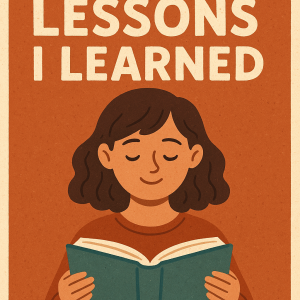How do you prevent relapse? This is one of the most-asked questions by people recovering from addiction. Having relapsed on substances myself, I have learned some important lessons the hard way.

In the final week of my time in inpatient rehab, I had mixed feelings. On the one hand, I was excited to get back to the people I loved and rebuild our relationships. On the other hand, I felt a deep sense of dread. What if I relapsed?
This is a common experience. The stats on addiction recovery can make anyone doubt themselves. Without understanding the context, the relatively high rates of relapse are concerning.
The fear of relapse is also perfectly understandable. You’ve worked hard to recover from a disease that has wreaked havoc on your life… and now you’re back at square one?
When, six months after leaving rehab, I did in fact relapse, it was tough not to fall into despair. But the experience taught me a lot about myself, as well as how to prevent relapse from happening in the future.
Here are the most crucial lessons I learned from my own relapse.
Relapse Does Not Mean You’re Back at Square One
When we talk about relapse, we are not referring to a one-time slip-up. Relapse is when you get back to (or close to) pre-recovery levels of substance use. In these scenarios, it is easy to fall into the trap of thinking you have to start at the beginning again.
With this idea in mind, I wondered if I had it in me to stop using substances again. And, if I’d relapsed this time, what was to stop me from doing so the next time.
This kept me from getting treatment for months until I could no longer go on living the same way.
However, during my second stint in rehab, I realized I wasn’t starting from scratch. As is true with most things in life, setbacks don’t stop you building on what you’ve learned. I had a far better understanding of addiction than the last time and had practiced important skills. I could also better prepare for the challenges I would face in the outside world.
Relapse helped me understand that nothing could invalidate my life experiences and personal growth. By seeing it as part of the journey, I also reframed the way I related to my struggles with addiction in general. Instead of being a source of shame it became another forward step on my path to health and happiness.
Complacency is an Enabler of Relapse
In spite of my trepidation when leaving rehab, I knew I was in a good position to sustain my sobriety. I had worked hard and was receptive to what we learned – more receptive than many other people. If anyone could avoid relapse, it was me.
This thinking unfortunately became an enabler of my relapse. Yes, I had worked hard and continued to do so. However, as is the case with any illness or injury, recovery from addiction requires permanent lifestyle changes. In the same way that a person who has recovered from a heart attack can’t go back to an unhealthy diet, someone who has recovered from addiction can’t return to old habits.
I knew this, at least to some extent. But old habits die hard and, over time, it is all too easy to start believing you no longer need to do the work.
Not All Addiction Treatment is Created Equal
I mentioned that the stats on the rates of relapse are misleading. The reason? There are different types of addiction treatment… and different providers. While there are certainly rehabs with relapse rates at close to 100%, there are also rehabs in which relapse is far more rare.
Was the treatment I received during my first time in rehab substandard? No, not at all. But it was missing something. It didn’t adequately prepare me for relapse.
The best addiction treatment centers accept that relapse is a part of the journey. Relapse prevention training is not always going to work. As such, it is crucial that recovering addicts are given the resources to respond to relapse in the most positive, healthiest way.
When I relapsed, I felt a sense of despair and avoided treatment for months, even though it had worked before. Because I had not been prepared for the reality of relapse, I lacked the capacity to choose the best course of action when it did occur.
Family Matters
Looking back, I can identify some of the things that triggered my relapse. One particular moment stands out: a fight I had with a family member, during which we both said awful things to each other.
I don’t blame them. I have worked hard to stop blaming myself, as well. The fact is that recovery involves a lot of facets, some of which are out of our control. Our relationships with loved ones are often a major sticking point.
During the early days of recovery, I assumed that my struggles with addiction were the cause of all my relationship issues. If I was no longer addicted, my relationships would recover too, right?
Sadly, not only does addiction often happen in the context of dysfunctional relationships, but it can also have a lasting impact on our connections. Our loved ones take on certain roles and, if they are not involved in the recovery process, they continue to play out those patterns.
Addiction is often called a family disease. The best treatment centers place tremendous importance on family therapy. With their participation, our loved ones learn not only how to best support our recovery, but how to recover themselves as well.
The Journey Continues
I never wanted to relapse. It certainly was not a pleasant experience, and I wouldn’t choose to go through it again. But it was part of my journey and I learned lessons that were necessary for sustaining my recovery in the long term.




